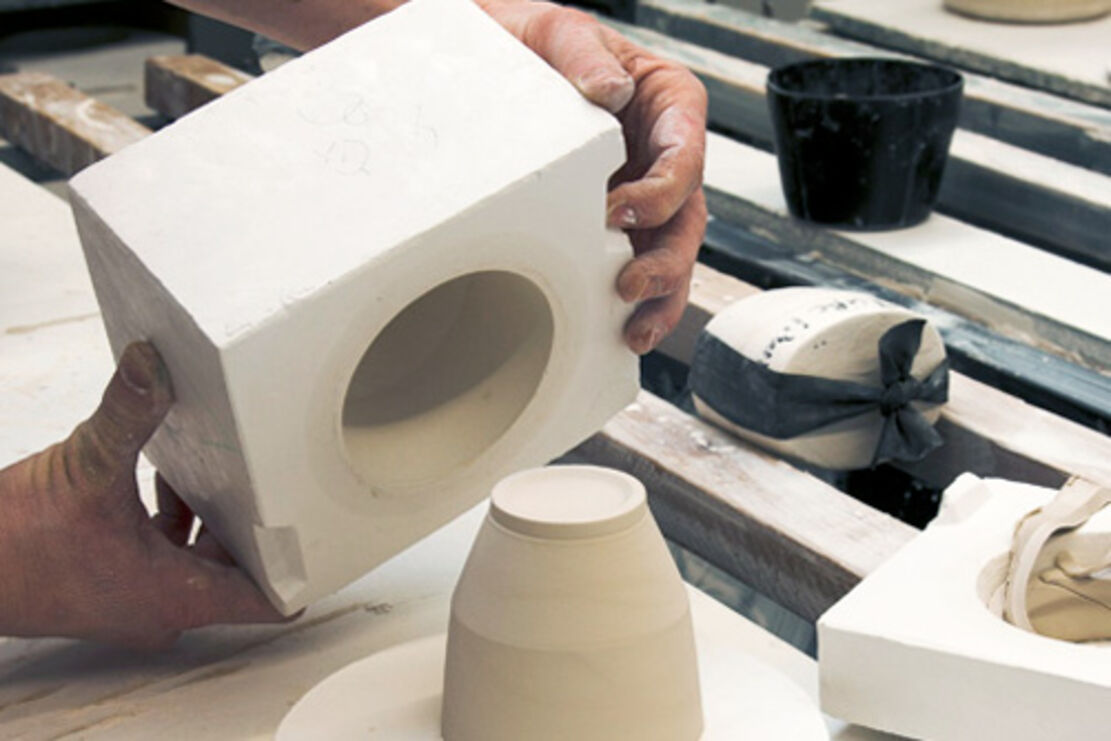The porcelain workshop offers students the opportunity to produce prototypes in the original material. Here, the universal molding process of slip casting offers optimal "freedom of movement" in material-oriented design. In addition, turning in by means of a template is possible. The necessary prerequisite in each case is the molding tool - the working mold in the material plaster. This can be made by the students themselves or with support in the plaster model workshop
Equipment:
The main material used in the course of study is soft porcelain designed for oxidizing firing, although casting materials for earthenware and stoneware are also used. The chamber kilns, which are almost exclusively electric, are designed for firing temperatures of up to 1300°C for these ceramic bodies.
A glaze laboratory is available to the students for the development and coloring of glazes and bodies. The glazes used generally correspond to finished glazes. These, as well as the masses, are colored for colored work as required using pigments. Further decorative techniques can be individually explored and realized for specific projects.
Finance Dean Practical teaching of skills of fine ceramic manufacturing techniques as well as model and mold making; CAD 3D modeling.
- Room: OU 18
- Phone: +49 2151 822-4367
- knut.michalk(at)hs-niederrhein.de
Frankenring 20
- 47798 Krefeld
- Consultation:
By appointment via e-mail




















